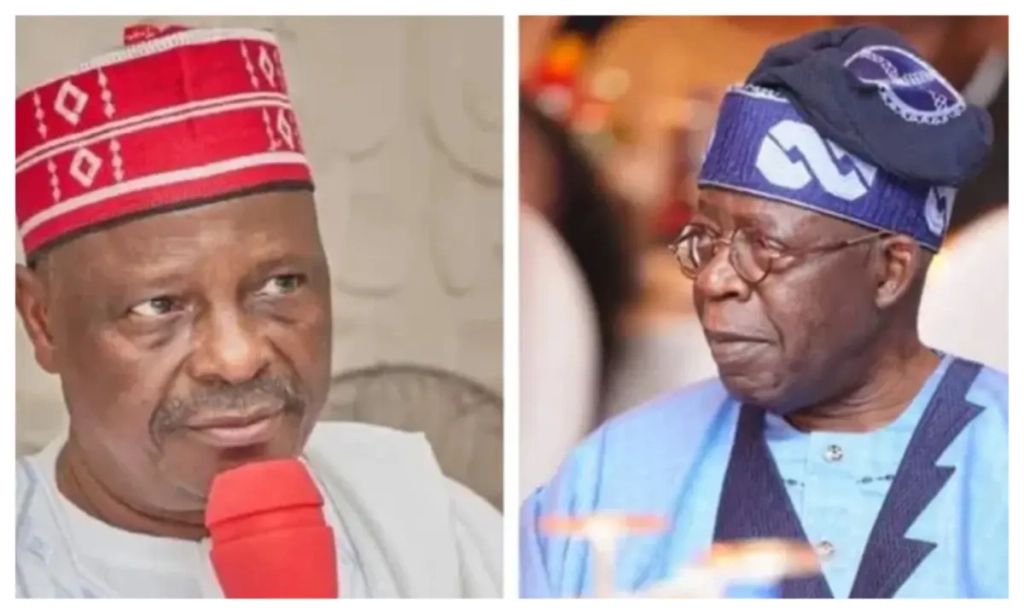A senior aide to Nigerian President Bola Tinubu has defended the leader’s recent meeting with opposition figure Rabiu Kwankwaso, dismissing speculation that the dialogue signals political opportunism. Abdulaziz Abdulaziz, Tinubu’s Senior Special Adviser on Print Media, described the engagement as routine in a democratic system, emphasizing the pair’s decades-long political rapport.
Speaking Monday on Channels Television’s The Morning Brief, Abdulaziz addressed public curiosity over the interaction between Tinubu—a member of the ruling All Progressives Congress (APC)—and Kwankwaso, the 2023 presidential candidate of the New Nigeria Peoples Party (NNPP). “Politicians talk; it’s not a sin to engage across party lines,” he said. “Such discussions shouldn’t be viewed with suspicion. Politics involves constant realignment and strategic positioning.”
The presidential aide traced their relationship to the early 1990s, noting both leaders were elected to Nigeria’s National Assembly during the annulled 1993 democratic transition. Later, they served as state governors in 1999, with Tinubu governing Lagos and Kwankwaso leading Kano. “Their association spans over three decades,” Abdulaziz stated, adding that their recent meeting reflects a “natural alignment” given their shared political history.
While critics speculate the dialogue could hint at Kwankwaso joining the APC-led administration, Abdulaziz underscored that cross-party engagements are neither unusual nor inherently consequential. “There’s no hidden agenda,” he insisted. “In politics, alliances shift, but this doesn’t always translate to immediate action.”
The comments come amid Nigeria’s evolving political climate, where rival figures occasionally collaborate on national issues despite party affiliations. Tinubu and Kwankwaso, both influential in the country’s northwest and southwest regions, have historically navigated fluid alliances—a practice Abdulaziz describes as pragmatic. “Their ability to maintain connections despite ideological differences exemplifies the adaptive nature of governance,” he remarked.
Observers note that such interactions may signal efforts to address regional security concerns or economic reforms, though neither side has clarified the meeting’s agenda. For now, Abdulaziz’s remarks aim to reframe the conversation, positioning the dialogue as part of Nigeria’s broader tradition of political bridge-building rather than a rupture in the status quo.
